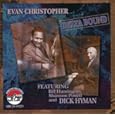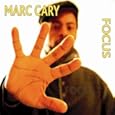The original:
[youtube]http://www.youtube.com/watch?v=2kotK9FNEYU&feature=related[/youtube]
McCoy a Phila. native... unreal version
[youtube]http://www.youtube.com/watch?v=PukuQPUKfyU[/youtube]
Gonzalo Rubalcaba tenacious...
[youtube]http://www.youtube.com/watch?v=s4HPqJyBMrU&feature=related[/youtube]
For those who don't know, Giant Steps is a Coltrane tune from the 1961 Atlantic Recording of the same name. At the time, it revolutionized Jazz because the chord changes were unusual, and provided a harmonic structure not yet experienced in Jazz and the tempo is very fast. Over the years, "Giant Stpes" became kind of a "proving your manhood" tune amongst Jazz heads. The question will always be, "can you play Giant Steps...?" I remember talking to Alto Sax Bobby Watson at some odd gig at La Salle University in the 80's and we were prasiing him, and he deferred talking about Tenor man George Coleman, he said, and I qutoe, "he can play Giant Steps in all 12 keys..." ...
The piano player on the original version here is Tommy Flanagan. A nice piano player and who was brought in by Atlantic for the session and was way over his head and over-matched with the tempo and new harmonies. Later on he re-corded it again to save his name!
The version by McCoy Tyner Coltran'es longtime piano man, is the most complex and advanced. There's also a very strange but interesting solo Alto Sax version by Anthony Braxton on Arista records from the late 70's. There's even a cool version for Big Band with Woody Herman.
This is not free jazz, or avant garde jazz, this is still straight ahead, swingin hard jazz -- and most top jazz artists can play this tune with some merit -- but I still enjoy the tune. I've seen McCoy do this tune live several times over the years and never lack for being blown away and reminded why I ultimately gave up the piano....















